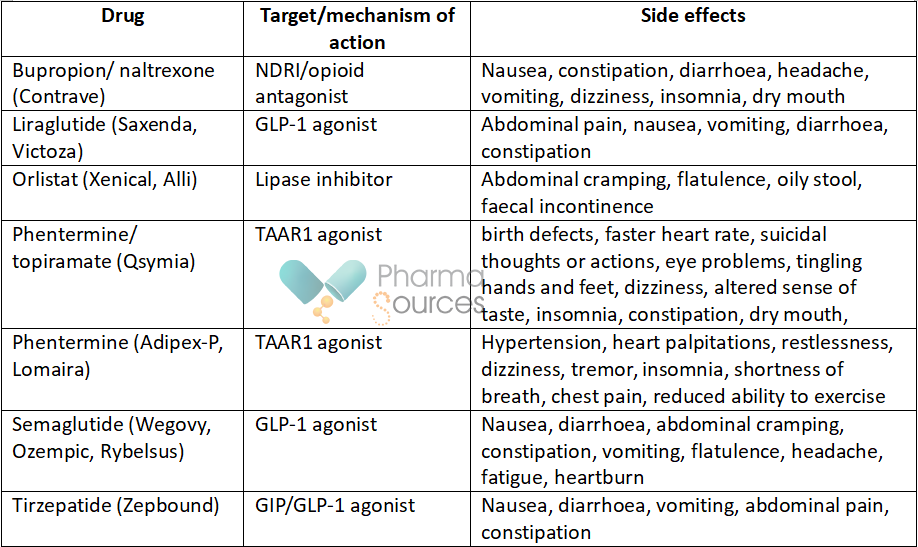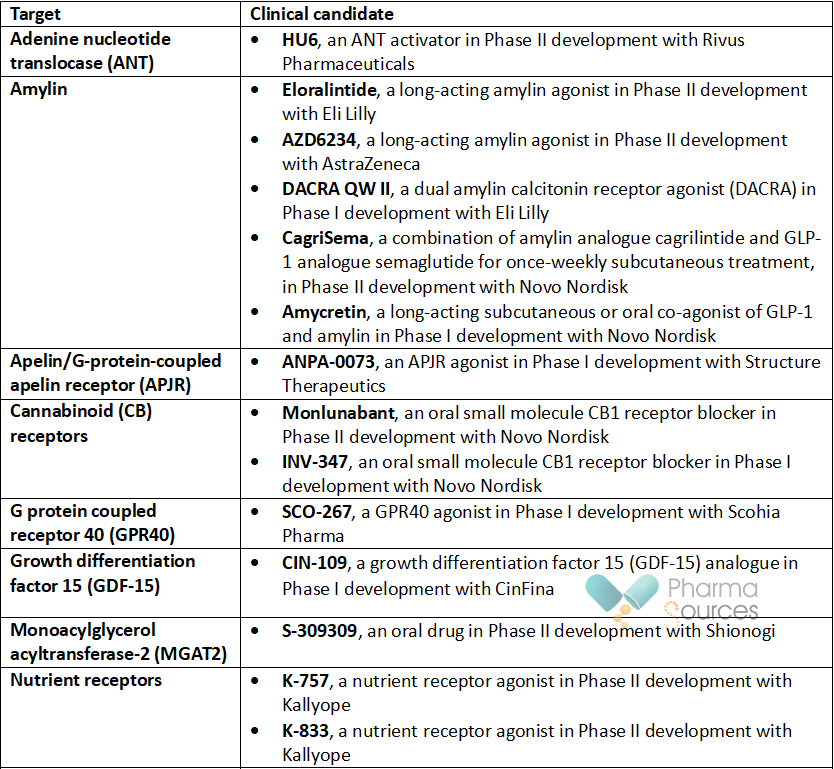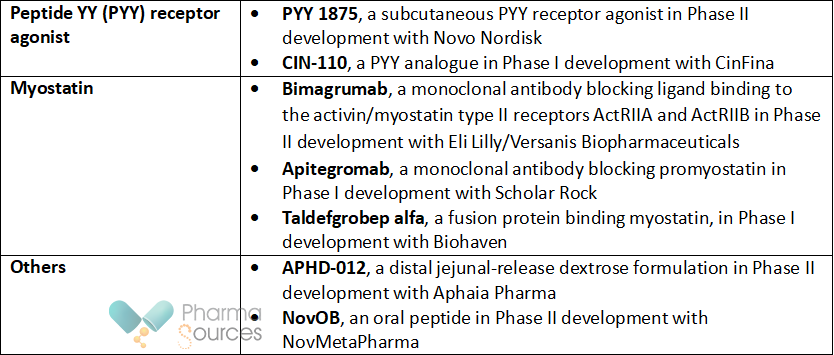Suzanne ElvidgeJuly 01, 2024
Tag: obesity drugs , The World Obesity Forum
The rising levels of obesity worldwide are creating a health challenge. According to the World Health Organization (WHO), the number of adults living with obesity rose by 138% between 1975 and 2016. During the same period, the numbers increased nearly 3-fold in boys and more than doubled in girls aged 15-19 years. Being overweight or obese is linked with cardiovascular diseases, cancer, type 2 diabetes, musculoskeletal conditions and chronic respiratory diseases, and has been associated with over 1.2 million deaths a year in the WHO European Region alone. By the year 2030, over a billion people could be affected by obesity, according to the World Obesity Forum. [1, 2]
Obesity is a complex condition, meaning that weight loss isn’t as simple as ‘eat less and move more’. Factors include: [3-6]
● Genes linked with weight gain
● Medical and genetic conditions, including metabolic disorders
● Geography
● Poverty and low socioeconomic status
● Lower levels of education
● Social and psychological factors
● Environmental factors
● Diet, including consumption of alcohol or ultra-high processed foods
● Inactivity
● Prescribed medications
● Age
● Perimenopause and menopause
● Prior pregnancy
● Sleep deprivation
After a shaky history of ineffective or harmful drug treatments for obesity, from laxatives and purgatives in the Greco-Roman period and tobacco in the 16th century, through thyroid hormones in the 19th century and amphetamines in the 20th century, to the now withdrawn drugs rimonabant, sibutramine and lorcaserin in the 21st century, the pharmaceutical industry is exploring new approaches in the journey to find better therapeutics for use in obesity. [7]
The obesity drug market value is expected to reach around $37.1 billion in 2031. The drugs currently on the market, including those shown in the table, use a variety of mechanisms of action and targets. [8, 9]

GIP=glucose-dependent insulinotropic polypeptide; GLP-1=glucagon-like peptide 1; NDRI=norepinephrine-dopamine-reuptake inhibitor; TAAR1=trace amine-associated receptor 1
Almost half of these target the gut hormone glucagon-like peptide 1 (GLP-1) alone or in combination with glucose-dependent insulinotropic polypeptide (GIP) and/or glucagon. This approach has grown out of the development of drugs for type 2 diabetes, which have shown to have the additive effect of weight loss. [9, 10]
While drugs based on GLP-1, GIP and glucagon are currently the major focus for obesity drugs in development, there are other approaches moving through clinical trials. [11] The following information is sourced from the company websites, and is not exhaustive.


The future of obesity drugs
The aim for companies in the field of obesity therapeutics is to deliver drugs that target fat rather than simply weight loss in order to preserve muscle mass, and to optimize energy expenditure rather than just cutting calorie intake through appetite suppression. While anti-obesity drugs are likely to need to be taken long-term as obesity is a chronic disease, the aim is to develop drugs that require less frequent administration. [12]
Side effects are a challenge with all therapeutics, especially those taken long term, and these will have to be carefully monitored. Obesity is associated with poverty, and it will also be important to ensure that patients have equal and long-term access to therapeutics. [11]
Because being overweight can be associated with excess morbidity and mortality, a focus on weight loss is important. However, a note of caution is also required. A person’s body mass index (BMI), which was developed based on a European white man and does not take into account age, activity, sex or muscle mass, is not the only tool to measure health risks. [13] The wider availability of obesity drugs could be life-changing and life-saving, but because obesity is a complex condition, it will also require changes to the environment and to society at large, for example curbing the overproduction and marketing of cheap, high-energy, high-fat, ultra-processed food and drink and normalising higher levels of physical activity. [2]
1. Staff writer, The challenge of obesity. WHO Newsroom: Fact sheets, 23 February 2024. Available from:https://www.who.int/europe/news-room/fact-sheets/item/the-challenge-of-obesity.
2. Lancet Editor, Treating obesity and diabetes: drugs alone are not enough. Lancet, 2024. 403(10421): p. 1.
3. Kim, D., F. Wang, and C. Arcan, Geographic Association Between Income Inequality and Obesity Among Adults in New York State. Prev Chronic Dis, 2018. 15: p. E123.
4. Millar, H., What to know about obesity and poverty. Medical News Today 25 April 2023. Available from: https://www.medicalnewstoday.com/articles/obesity-and-poverty.
5. Mambrini, S.P., et al., Ultra-Processed Food Consumption and Incidence of Obesity and Cardiometabolic Risk Factors in Adults: A Systematic Review of Prospective Studies. Nutrients, 2023. 15(11).
6. Staff writer. Obesity: What are the causes and risk factors? NICE: CKS. August 2023. Available from: https://cks.nice.org.uk/topics/obesity/background-information/causes-risk-factors/.
7. Bray, G.A. and J.Q. Purnell, An Historical Review of Steps and Missteps in the Discovery of Anti-Obesity Drugs, in Endotext, K.R. Feingold, et al., Editors. 2000: South Dartmouth (MA).
8. Langmaid, S., Prescription Weight Loss Drugs: GLP-1s, Tirzepatide, and More. WebMD, 2024. Available from: https://www.webmd.com/obesity/weight-loss-prescription-weight-loss-medicine.
9. Beaney, A., Obesity: Six trials to watch over the next 12 months. Clinical Trials Arena, 30 June 2023. Available from: https://www.clinicaltrialsarena.com/features/obesity-trials-to-watch/?cf-view.
10. Ratanghayra, N., Gut Hormone-Based Pharmacotherapies for Obesity. PharmaSources, 28 April 2024. Available from: https://www.pharmasources.com/industryinsights/gut-hormone-based-pharmacotherapies-for-76376.html.
11. Melson, E., et al., What is the pipeline for future medications for obesity? Int J Obes (Lond), 2024.
12. Tchang, B., 5 Things to Know About the Future of Obesity Medicine. 15 February 2024. Available from: https://www.medscape.com/viewarticle/999940.
13. Katella, K., Why You Shouldn’t Rely on BMI Alone. Yale Medicine News, 4 August 2023. Available from: https://www.yalemedicine.org/news/why-you-shouldnt-rely-on-bmi-alone.
Based in the north of England, Suzanne Elvidge is a freelance medical writer with a 30-year experience in journalism, feature writing, publishing, communications and PR. She has written features and news for a range of publications, including BioPharma Dive, Pharmaceutical Journal, Nature Biotechnology, Nature BioPharma Dealmakers, Nature InsideView and other Nature publications, to name just a few. She has also written in-depth reports and ebooks on a range of industry and disease topics for FirstWord, PharmaSources, and FierceMarkets. Suzanne became a freelancer in 2006, and she writes about pharmaceuticals, consumer healthcare and medicine, and the healthcare, pharmaceutical and biotechnology industries, for industry, science, healthcare professional and patient audiences.


Contact Us
Tel: (+86) 400 610 1188
WhatsApp/Telegram/Wechat: +86 13621645194
Follow Us:




 Pharma Sources Insight January 2025
Pharma Sources Insight January 2025


